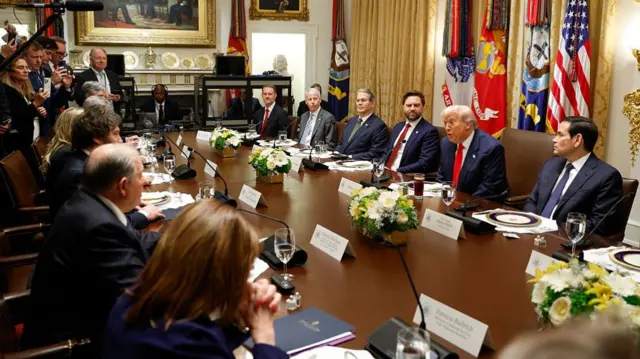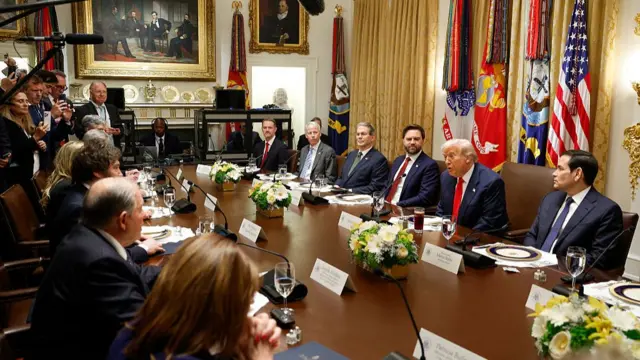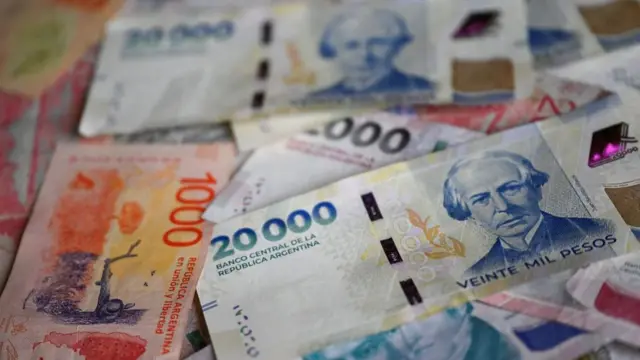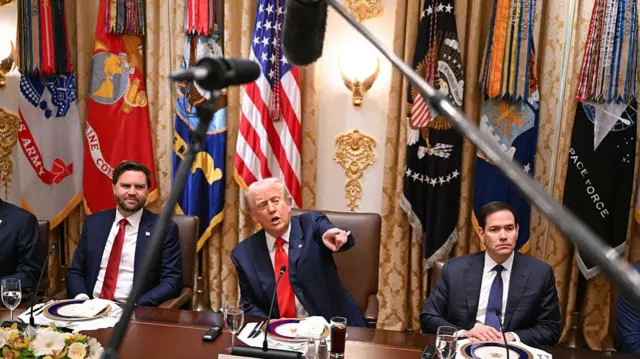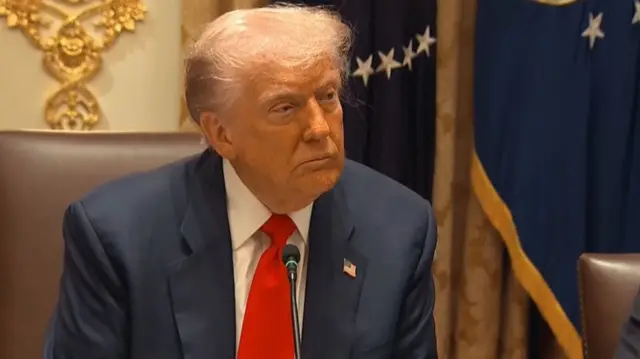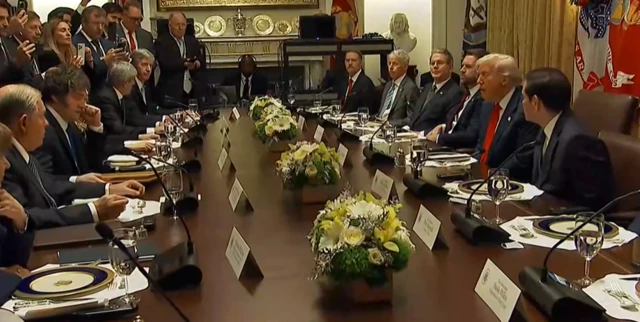
Can Donald Trump really sway the Argentine election?published at 22:57 BST 14 October
 Ione Wells
Ione Wells
South America correspondent
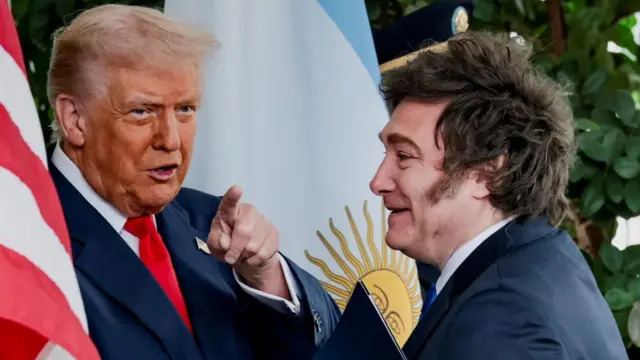 Image source, Getty Images
Image source, Getty ImagesCan Trump's comments really sway an election in Argentina? Donald Trump said the not-so-quiet bit out loud in this meeting: the US’s financial support for Argentina, in the form of a $20bn (£15bn) currency swap, is to help bolster Javier Milei’s poll ratings ahead of midterm elections on 26 October.
"I think they will be better after this," Trump declared around a table at the White House. "Our approvals are somewhat subject to who wins the election."
But will Trump's statements actually make a difference? On the one hand, this swap is a bit of a lifeline for the Argentine peso. Milei had been stopping it from crashing by propping it up with the country's reserves. Doing that drained reserves, ahead of $20bn (£15bn) in debt payments due next year. That led to fears the country was heading for an imminent financial crisis.
So, this US support does help Milei – for now – avoid that by instead letting the peso instead devalue sharply. Many economists have thought that move could be political suicide, as it would lead to a spike in inflation again. Trump also seemed to threaten that US support for Argentina depended on Milei and his party doing well in these midterm elections.
But is that calculation really going to cut through to ordinary voters? Some opinion polling suggests that Argentines are tiring of austerity measures. The policies may have cut inflation and the deficit significantly, but they've come at a social cost. And Milei's party has been rocked with various corruption scandals, including one involving his sister.
These are all just some of the - sometimes competing - factors playing on Argentines' minds as they head to the voting booths in a few weeks.
- We are ending our live coverage of today's meeting between the two presidents. You can listen to the latest episode of The Global Story podcast for more on the US deal with Argentina. It's on BBC.com or wherever you get your podcasts. Thank you for joining us.
